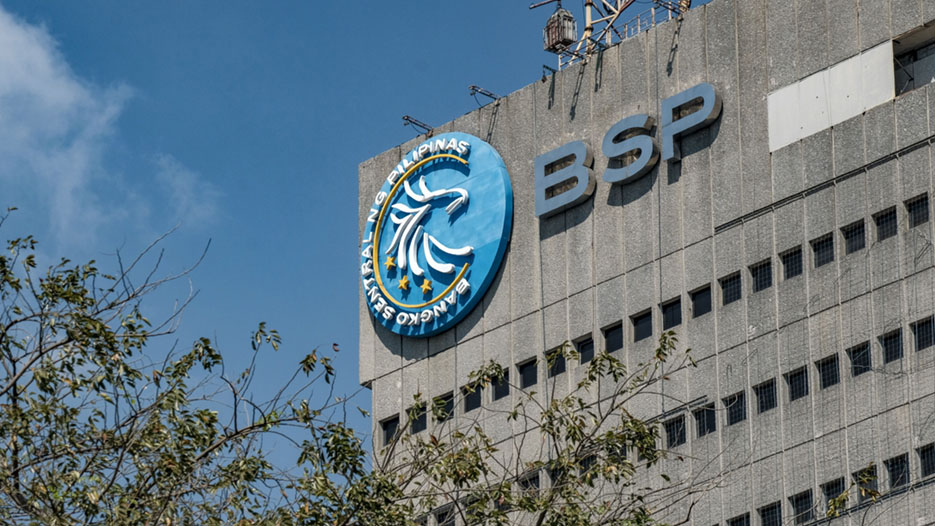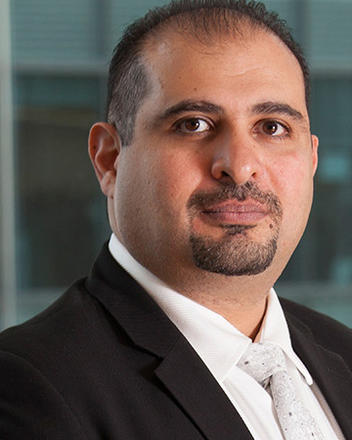Asian Islamic finance plugs into fintech future

Asia’s Muslim population is held back by the lack of faith-based financial services. With more countries recognising the need for sharia-compliant banking, fintechs are moving into this space.
Establishing a parallel banking system in a country is unsurprisingly complex. The Philippines first moved to establish Islamic finance in 1973, with the creation of Al-Amanah Bank, later renamed Al-Amanah Islamic Investment Bank of the Philippines. To date, however, it is the only Islamic finance bank to service the financial needs of the country’s five million Muslims. The situation is far from ideal.
Recognising the need to provide tailored services, in March 2021 the Philippines’s central bank, Bangko Sentral ng Pilipinas (BSP), announced that it would promote Islamic finance with the establishment of Islamic banks and banking units. The central bank has learned from the developments in its neighbouring countries on what to prioritise.
Arifa Ala, managing director of BSP, says: “We know that in order to establish a sustainable Islamic banking system, the issue of lack of tax neutrality needs to be addressed within the Islamic banking law. Under the Revenue Regulation, implementing the tax neutrality provision of the law, Islamic banking products should not be taxed more heavily, nor more lightly, than their conventional banking counterparts. Our aim is to establish an enabling environment where Islamic banks — whether fully fledged Islamic banks or Islamic banking windows — are able to operate viably alongside conventional banks.”
There is a [growing] need for [sharia-compliant] fintech services. And not just the more exotic offerings, but classic services like bank accounts
Since 2018, under the Bangsamoro Organic Law, government agencies have been mandated to establish a sharia supervisory board that would complement the advisory boards in place in financial institutions. As such, the groundwork was laid to establish a new banking system.
Even when these legal frameworks are in place, however, the banking sector will not grow without customers. Therefore, educating potential customers of banking services catering to their specific needs is the next step and will help reduce the size of the unbanked population.
“Around 10% of Filipinos are Muslims, and most of them reside in the Bangsamoro Autonomous Region in Muslim Mindanao,” Ms Ala says. “This is one of the most unbanked areas in the country. From surveys with Muslim Filipinos, we know that they are looking for sharia-compliant financing.”
Filling the gaps
Some institutions are taking the opportunity to bring Islamic finance into the 21st century, leapfrogging incumbent banking structures. For example, building digital-only banks eliminates the need for physical branches and establishing infrastructure that could take years to build.
Bashar Al-Natoor, global head of Islamic finance at Fitch Ratings, says primarily people need digital access to banking basics, such as an account for deposits and a debit card. This issue is not unique to Asia. “There is a [growing] need for [sharia-compliant] fintech services. And not just the more exotic offerings, but classic services like bank accounts,” he says. “This is especially true given that the proportion of the unbanked population in the 57 Organisation of Islamic Co-operation countries hit around 60% at end-2018 — of which, about 6% financially excluded themselves due to faith-based reasons (based on the World Bank data).”
And current developments may help to expedite the process. The move towards digital services and social distancing predicated by the pandemic could fuel growth in the Islamic finance fintech sector.
“The main issues are with building the awareness of the services, and then giving people the option,” Mr Al-Natoor says. “The past year, when everyone has been working remotely, has helped to accelerate the pace of digital change, so I would expect a lot of these initiatives to develop quite rapidly now.”
Increased awareness of Islamic finance products means they are also attracting the attention of conventional banking customers.
“In countries like Malaysia, where there is a significant number of Islamic banking institutions, not all of the customers of those Islamic banks are Muslims,” Ms Ala says. “Some customers see Islamic banking as an alternative type of financing, particularly for those who want to diversify their portfolios. This is how we are packaging Islamic banking: it is a banking system that is not exclusively for Muslims — it is an alternative system that is available to everyone.”
However, there is an expectation by customers living in more developed economies, who may have experience of using conventional digital banking services, that the sharia-compliant offerings meet the same standard.
Meet the fintechs
As sharia-compliant banking becomes more widely available, there is a growing cohort of fintechs keen to fill a gap in the market and meet a wide range of retail- and business-banking needs.
Alami Sharia, a peer-to-peer (P2P) lending company, provides loans to micro and small and medium-sized enterprises (MSMEs). It is one of three Islamic P2P fintechs issued with a permanent licence from the Otoritas Jasa Keuangan, the Indonesian financial services authority. To date, Alami Sharia has disbursed more than $40m to MSMEs.
Dima Djani, chief executive of Alami Sharia, says the product suite is structured along sharia-compliant lines. “Our product is invoice financing. We cannot apply factoring as it is not permitted. Lenders are giving out a 0% interest loan, but the lenders can receive commission as they are providing a service, like administering the transaction,” he says. “There is another product, which is an underlying sell agreement. Instead of, for example, giving a farmer a loan for working capital, we buy the product that will be used and they pay for it in instalments.”
Also covering the small-business lending space is Investree, a marketplace that connects SMEs with short-term working capital solutions. The fintech verifies, scores and underwrites the companies, and has originated $520m in loans across Indonesia, the Philippines and Thailand, with 7% of the overall product coming from the sharia-compliant segment.
“The products are sharia-compliant, as they fall into a leasing or profit-sharing structure,” explains Adrian Gunadi, co-founder and chairman at Investree. “They then receive approval from a sharia scholar. Finally, they need approval from the regulators, which includes the National Sharia Board, to obtain a sharia licence.”
While there have been short-term working capital offerings through banks before in the form of unsecured invoice financing, Mr Gunadi says the service is breaking new ground through being fully digitised.
In mobile banking, Indonesia’s post office, Pos Indonesia, has collaborated with currency fintech Kinesis to develop a gold-backed monetary system. Its PosGo app allows customers to manage their finances through a trusted partner, as Pos Indonesia is the country’s largest non-bank institution. As the transactions are tied to physical gold, they are debt and interest free, and meet the standards of the sharia council. The transactions are recorded on the blockchain, providing full oversight and accountability.
Thomas Coughlin, chief executive of Kinesis, says the platform has established a parallel domestic payments system and has capability for cross-border remittances to service migrant workers.
“It’s an interesting public–private partnership, as [Pos Indonesia] is a cornerstone of the payments industry in Indonesia,” Mr Coughlin says. “It tackles the inefficiencies of the payment industry. We can bring the unbanked into the payment system, and as the post office is a government organisation, it gains their trust. By holding gold, customers are also protecting themselves against inflation.”
Faith and charity
Services are also being developed to support aid efforts. Duithape (read as: do it happy), for example, distributes aid using face-recognition technology. Aid recipients visit certain shops and have their photos taken. If it matches an account, they input a PIN and select a voucher they want to use. The vendor then receives the cash value of the transaction.
Providing these services is beneficial to the community. Sara Dhewanto, founder and managing director at Duithape, says the majority of purchases are made in small ‘mom and pop’ shops, which had lost up to 70% of their sales due to the pandemic. Through using Duithape, they have seen their sales increase by an average of $4200 per month.
And rather than standing in line for hours waiting for handouts, aid recipients are able to receive financial support by visiting a shop. They can choose from a selection of approved items, such as food, school supplies and household appliances. Recipients can also build up a financial history profile based on their purchases.
Some customers see Islamic banking as an alternative type of financing, particularly for those who want to diversify their portfolios
This data-collection element makes the service attractive to charity partners and provides insights that would otherwise be unobtainable. “Flood victims received $100 in aid and while, unsurprisingly, their main purchase was rice, the second was a blender,” explains Ms Dhewanto. “The people most impacted by the floods lived in the slums by the riverside, and many of them work as food vendors. For them, a blender was an essential for their livelihood. Because they had the freedom to choose what they needed, they chose the item needed to sustain their livelihoods. No aid organisation would think of distributing blenders.”
Working directly with Duithape, rather than via conventional banks, has provided charities such as Islamic Relief reason to feel more comfortable, Ms Dhewanto explains, as it is easier for them to confirm full compliance with sharia principles. The aid agencies themselves are also more secure, as previously they would have to travel to hand over cash or goods in person.
The charity element that is inherent within Islamic finance is an area that would benefit from an overhaul.
“In Islamic finance, we have the social finance aspect in addition to commercial finance,” Mr Djani says. “Muslims have to donate 2.5% of their income as obligatory zakat, to help those in need. Often, the social finance element is not being done in a professional way. This is an area with a lot of potential.”
Great prospects
Even with the developments already seen, the sharia banking sector in Asia is considered as one which has even greater scope for expansion, but only if it receives the attention it needs.
Fitch’s Mr Al-Natoor says: “For sharia finance to develop, there really needs to be the political will for it, but that is missing in some countries. It is still in its infancy, and it will remain there unless there is an enabling environment and the political will to allow it to grow.”
He adds that is a key challenge for countries where there is a limited awareness and lack of confidence in the sharia-compliance of Islamic financial products, particularly in markets where the industry has only a niche presence.
Established companies that are looking to expand are targeting key demographics to help them to spread awareness of their brand and credentials. “You can see a lot of the players are now targeting the sharia-minded millennials, who are looking at more convenient, more accessible and faster means [to fulfil] their financial needs,” Mr Gunadi says.
The expansion of fintech products owes some gratitude to the word-of-mouth recommendations of these customers, as well as respected members of the Muslim community.
“The demand we have seen has been huge and this is thanks to social media,” Mr Djani says. “Knowledge is growing, thanks to more people and Islamic clerics using YouTube, Instagram and other social media channels to share their knowledge. This is increasing the understanding of millennial and generation-Z customers.”
Expansion also means moving into new areas of banking. Alami Sharia is already looking at how it can expand its horizons, after it acquired Indonesian rural bank, BPRS Cempaka Al-Amin, in early 2021. The company is focusing on creating a modern bank by overhauling the incumbent’s existing technology. From this vantage point, Alami Sharia is looking at expanding its operation into other countries and regions.
However, Mr Al-Natoor cautions that the legal boundaries and differing perspectives of sharia scholars may stymie international growth. “The ability to operate cross-border is limited by regulations,” he says. “Having a virtual world where you could transact globally could be a reality at some point, but right now the regulatory infrastructure is not there yet in many countries.”
Continue reading: Islamic finance in Indonesia at a tipping point




